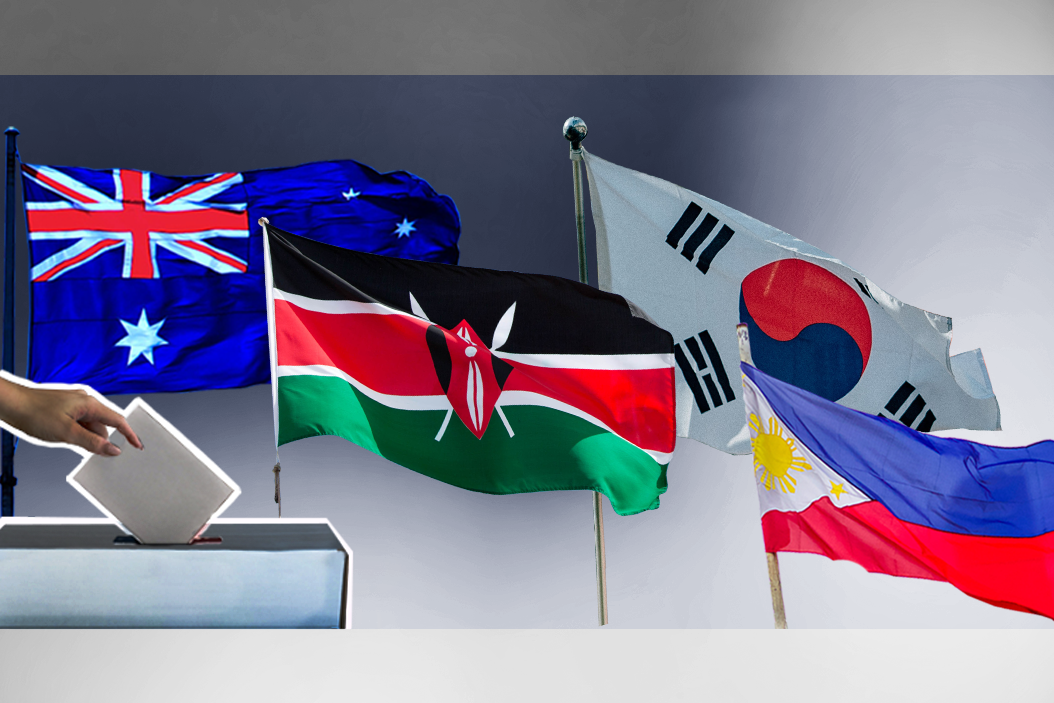December 27, 2021
A few days ago we previewed five major elections to watch in 2022. Here are some others we'll be paying close attention to in the months ahead.
South Korea (March). South Korean voters will choose between two very different options to replace Moon Jae-in, the term-limited incumbent. The candidate from the ruling center-left party is Lee Jae-myung, a former civil rights lawyer and governor known as the South Korean Bernie Sanders because he backs a universal basic income. Lee’s rival and center-right hopeful is Yoon Seok-youl, a former prosecutor who helped convict former president Park Geun-hye of abuse of power in 2016.
On foreign policy, Lee wants warmer ties with China, more control over US forces in South Korea, and to play nice with North Korea. For his part, Yoon wants to push back more against China, bolster the US alliance, and deploy US tactical nukes on South Korean soil to deter Pyongyang. Yoon is ahead in the polls, yet not by much. Lee is more experienced and popular with young voters, who could decide the outcome if they turn up in high numbers.
Australia (by May 21). Australians will go to the polls before the end of May. It's a legislative election, so the party that gets a majority of seats in parliament will pick the next prime minister. The approval rating of the current PM, Scott Morrison of the right-leaning Liberal Coalition, is now at its lowest in 18 months due to frustration over one of the world's longest and strictest pandemic lockdowns, which has pummeled Aussie businesses.
Still, the Coalition remains neck-and-neck in the polls with the opposition Labor Party, struggling to capitalize on Morrison's unpopularity. The main campaign issues will likely be climate, but perhaps more COVID and the economy. On foreign policy, both parties want to maintain close ties with the US, support the AUKUS regional military alliance, and have similar views on China — although Labor doesn't want Australia to be in complete lockstep with America as it says Canberra has been under Morrison.
The Philippines (May). Philippine elections have always been deeply polarizing, and next year's will be no different. The current frontrunner in the race to succeed term-limited President Rodrigo Duterte is Ferdinand Marcos Jr., son of the late dictator. Marcos, a staunch Duterte ally, has the president's daughter as his running mate, and right now more than half of Filipinos would vote for him.
But Marcos is reviled by other Filipinos, who remember how his strongman dad embezzled up to $10 billion in his 21 years in power (which the Marcoses deny). With boxer-turned senator Manny Pacquiao polling in the single digits, the anti-Duterte and anti-Marcos opposition has pinned all its hopes on VP Leni Robredo, who beat Marcos in the 2016 Veep contest but at the moment is a long shot.
Kenya (August). Although President Uhuru Kenyatta cannot run for a third term, he will loom large over the 2022 election. Last May, the country's top court junked Kenyatta's planned constitutional referendum in order to make Kenyan politics less tribal in exchange for more executive power. The verdict was a big win for William Ruto, Kenyatta's deputy and current presidential frontrunner.
Ruto — the first candidate not from a political family with a shot at winning the top job — is leading the polls over Raila Odinga, the scion of a prominent dynasty and Kenyatta’s former enemy turned ally. Promising to fight both wealth inequality and political dynasties, the president’s number two styles himself as a "hustler" to appeal to the three-quarters of Kenyans aged between 18 and 35. But he needs to get young people to actually show up at the ballot box, and so far the ongoing registration drive isn’t going well.More For You
People in support of former South Korean President Yoon Suk Yeol rally near Seoul Central District Court in Seoul on Feb. 19, 2026. The court sentenced him to life imprisonment the same day for leading an insurrection with his short-lived declaration of martial law in December 2024.
Kyodo
65: The age of former South Korean President Yoon Suk Yeol, who was sentenced to life in prison on Thursday after being found guilty of plotting an insurrection when he declared martial law in 2024.
Most Popular
In an era when geopolitics can feel overwhelming and remote, sometimes the best messengers are made of felt and foam.
Hungarian Prime Minister Viktor Orban holds an international press conference in Budapest, Hungary, January 5, 2026.
REUTERS/Bernadett Szabo/File Photo
The Hungarian election is off to the races, and nationalist Prime Minister Viktor Orbán is facing his most serious challenger in 16 years.
How people in G7 and BRICS countries think their policies will effect future generations.
Eileen Zhang
Does skepticism rule the day in politics? Public opinion data collected as part of the Munich Security Conference’s annual report found that large shares of respondents in G7 and several BRICS countries believed their governments’ policies would leave future generations worse off.
© 2025 GZERO Media. All Rights Reserved | A Eurasia Group media company.
